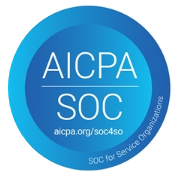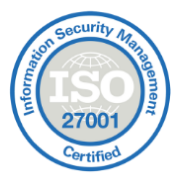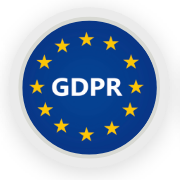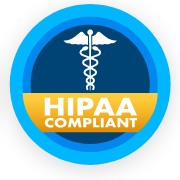Are you familiar with corporate learning and development? It’s all about offering training and skills enhancement for employees. However, the latest trend is taking the business world by storm. It’s called “customer training,” and it’s becoming increasingly popular among industries. What is customer training; you may be curious to know. Well, it’s a type of training planned for your customers, not your employees. In this blog, we’ll dive into customer training, why it’s so important, and what you should look for in an LMS for Customer training.
What is the significance and purpose of Customer Training?
Customer training is a method that offers customers the essential data to utilize a product or service and generate maximum value from it. This trend is increasingly gaining popularity in B2B businesses, mainly in SaaS organizations.
The advantages of customer training for businesses are significant, comprising minimizing the number of customer service operations and associated costs, confirming flawless customer onboarding process and quicker product adoption, enhancing customer retention rates, maximizing options for up-selling and cross-selling, and educating customers with knowledge on how to utilize the product or service.
While customer training can be focused, self-paced, or a combination of both, synchronous training methods such as classroom training may not be feasible due to the difficulty of getting all customers in one location. Self-paced virtual training with the support of a Learning Management System (LMS) is the ideal mode for customer training, confirming maximum efficacy.
5 Important Factors You Should Look For In An LMS For Customer Training
Self-paced Learning
When it comes to training, there’s a primary difference between corporate training for employees and customer training. The responsibility is to help your customers instead of expecting them to help you. It indicates that you can’t simply plan training programs for your customers or offer them a limited time to access courses and resources. Instead, the learning method should be truly self-paced so that customers can effortlessly access the data they require anytime, anyplace. An operative way to make this happen is by utilizing a Learning Management System (LMS), which allows you to offer consumers the essential information they need on priority. With an LMS, you can confirm that customers can access training resources at their comfort to enhance their experience with your product or service.
Tailored Multi-language Interface
In todays’ world, businesses serve training to a wide variety of customers who come from different countries, speak different languages, and have different cultures. It can make customer training difficult, particularly when filling communication breaches with a common language like English. However, with the support of eLearning translation and an advanced Learning Management System (LMS), this problem can be solved. By tailoring the LMS with a multi-language interface, you can deliver a more customized, dynamic, and appealing customer experience throughout the training program. It will not only support beating communication barricades but also improve their overall satisfaction with your product or service.
Monitoring, Analyzing, and Reporting
Upgrading and enhancing your customer training sessions is significant to gain a greater ROI. Hence, choosing an LMS allows you to monitor the progress of specific customer training programs by producing reports based on real-time data is essential. By analyzing these reports, you can measure the success rate of your customer training programs utilizing necessary metrics such as the training materials accessed by customers; the time invested in each course, and recognized breaches in skills and knowledge. In addition, it will empower you to make informed decisions about enhancing your customer training sessions to confirm that they are providing the best possible outcomes.
Integration
Integrating your LMS with current ERP and CRM solutions can improve and personalize the learning experience for customers. This incorporation can simplify the learning approach while delivering valuable acumens into which customers access course content. With this data, you can suggest relevant courses or training sessions by notifying automated warnings or messages. Moreover, you can use the integration to measure the efficacy of each training session in improving product adoption, customer loyalty, and overall customer experience.
Technical Support
The flawless functioning and performance of both on-premise and cloud-based LMS need continuous technical support. LMS sellers provide technical support facilities to help your organization utilize the LMS proficiently without needing a dedicated employee. However, the quality and speed of technical support may differ among top LMS sellers. Hence, when choosing a customer training LMS, confirming that the seller offers 24/7 technical support. Moreover, you must select a seller that provides technical support through various communication mediums such as emails, voice calls, text messages, and instant messages.
Why choose Paradiso LMS for Customer Training?
Effortless Content Upload & Tracking
Our focus on business ease is reflected in the simplicity of the content-uploading procedure in our learning management system (LMS). It confirms that your customers have much content available in multiple formats and can easily access it.
Tailored Learning Paths
Every employee training program is designed with specific learning paths to create a structured and personalized learning experience that saves time. It allows employees to pursue their career goals and engage in courses relevant to their interests.
Insightful Reporting & Analytics
Our system helps you stay ahead of the competition by keeping records of your employees’ desires, what they need help with, and what could be better. As a result, you’ll have all the acumens you need to build tailored training experiences that enhance employee engagement and drive business success.
E-commerce integration and self-registration
Our learning management system (LMS) offers eCommerce integration and self-registration features that make it easy to monetize your training courses. It means you can create and sell training programs to your customers or clients, generating additional revenue for your business.
Final Thought
While customer training may differ from employee training in many ways, the end goal is the same – to create accessible, engaging, and dynamic training experiences. Paradiso LMS makes achieving this goal a reality for customer and employee training.


















